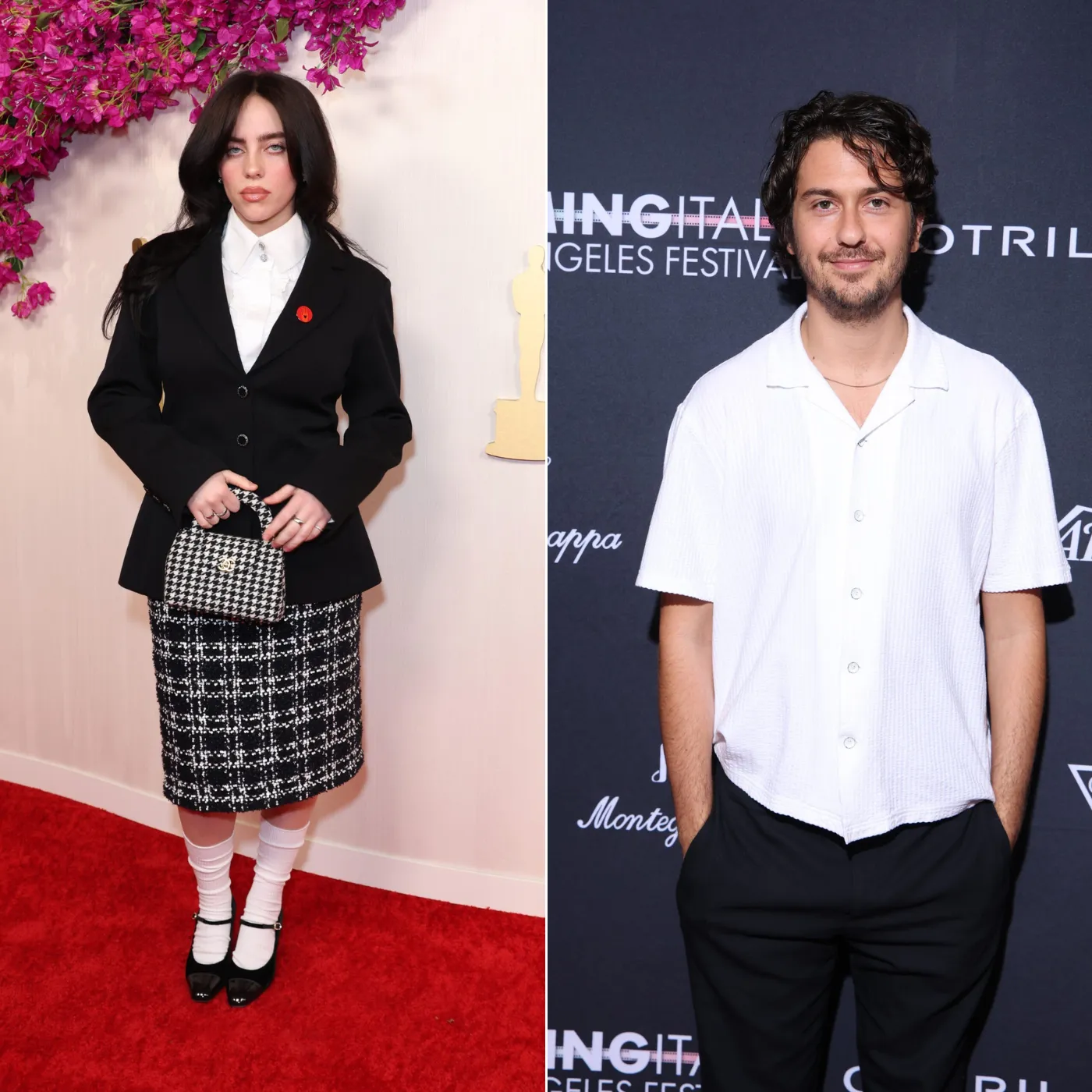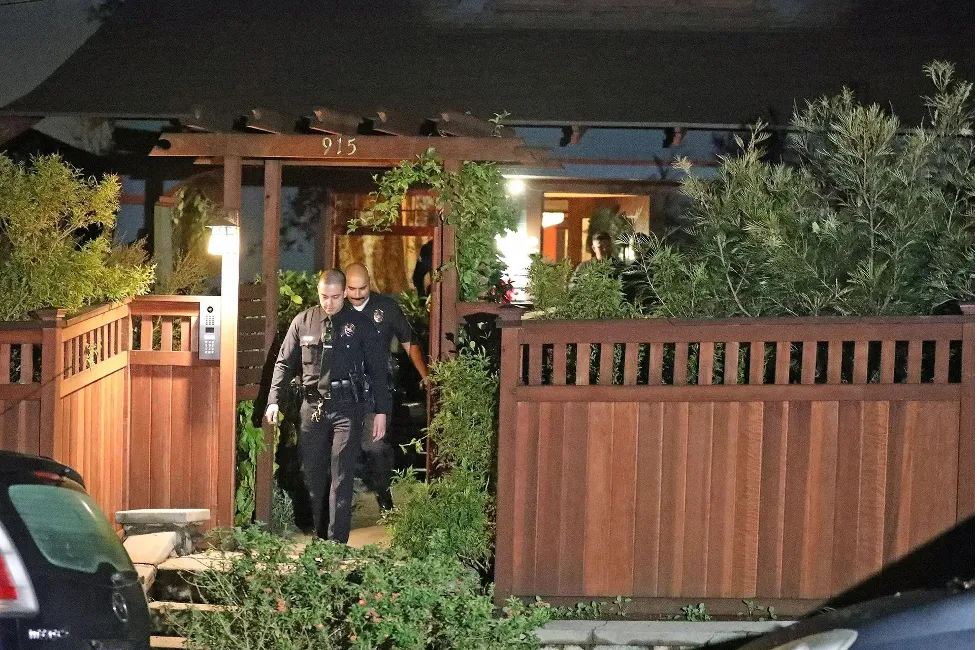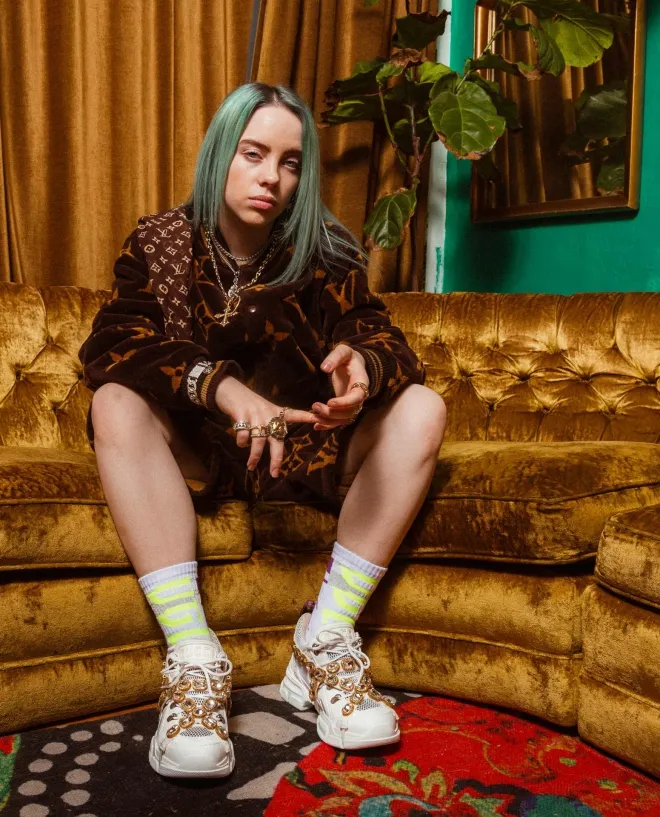

From Bedroom Walls to Grown-Up Calls: Is Billie Eilish Finally Breaking Free with Nat Wolff by Her Side?
Billie Eilish, the haunting voice of Gen Z’s melancholia, has always been more than just a pop star. She’s a cultural symbol—a walking contradiction wrapped in baggy clothes, whispering about fame, pain, and privacy over ambient beats. But lately, something has shifted. The girl who once ruled the charts with tales of broken dreams and night terrors now seems to be waking up. And she’s not alone.

Enter Nat Wolff. Actor. Musician. Once a Nickelodeon heartthrob, now an indie darling with a surprisingly quiet, mature presence. A figure from a different era of young fame, Nat may be the most unlikely companion for Billie Eilish—yet their chemistry has been lighting up headlines, coffee shops, and late-night Instagram scrolls alike.
So what’s really happening here? Is Billie evolving in public once again, leaving behind her bedroom walls and stepping into something—someone—new? Or is this just another performance in the theater of celebrity? One thing is certain: the way she looks at Nat Wolff, and the way he looks back, has fans, critics, and culture watchers leaning in close.
The Bedroom Era: Billie’s Startling Rise to Fame
To understand what this new phase could mean, we need to look back at the beginning—when Billie Eilish was just a fifteen-year-old uploading haunting tunes to SoundCloud, co-written with her brother Finneas in their childhood home. Her debut album, “When We All Fall Asleep, Where Do We Go?”, wasn’t just a commercial success; it was a declaration of emotional independence, drowning in dreams, teeth-grinding anxiety, and teen angst.
Her fans—many of whom papered their bedroom walls with her face—didn’t just listen to her music; they inhaled it. Billie became a safe place. Someone who understood. Someone who felt like them. And so, her persona remained frozen in a kind of adolescent shadowland: relatable, tortured, and too cool to care.
But no one stays 17 forever.
Changing Sounds, Changing Tides
When Billie Eilish dropped her second studio album, “Happier Than Ever”, there was a palpable change. The sounds were more layered, the lyrics more reflective, the production lusher. Gone were the whispers of monsters under the bed—replaced with quiet fury, breakup trauma, and subtle digs at the entertainment machine.
She was growing up, and she wanted the world to notice. Yet even as she stepped into a more adult sonic space, the public still clung to the Billie they first met: baggy pants, green roots, and wide, suspicious eyes. Perhaps it was easier to box her in than to watch her unravel and rebuild.
And maybe that’s exactly why Nat Wolff enters this story like a curveball no one saw coming.
Who Is Nat Wolff, Anyway?
For those who remember the mid-2000s, Nat Wolff may forever be etched in memory as one half of the sibling duo behind “The Naked Brothers Band”, a mockumentary-style kids’ show that cleverly blurred the lines between sitcom and rock band. But Nat, now in his late twenties, has quietly crafted a career of substance—appearing in indie films, writing thoughtful songs, and staying mostly out of the celebrity circus.
In other words, he’s grown up—quietly, artfully, intentionally.
That makes his rumored connection to Billie Eilish all the more fascinating. Their alleged romance hasn’t been splashed across tabloids in traditional celebrity fashion. No beach paparazzi. No red carpet debut. Just glimpses: a hand gently placed on a back, coffee cups clinked together, long conversations in low-lit venues.
And yet, fans are buzzing. Because what if Nat Wolff isn’t just a romantic detour—but the mirror Billie needs to see herself clearly for the first time?
Freedom in the Familiar: What Billie May See in Nat
There’s something poetically ironic about Billie Eilish, once the reluctant pop star held hostage by her own image, choosing to spend time with someone like Nat Wolff. He’s been famous, but never famous. Known, but never overly consumed. He’s experienced the machinery of childhood stardom and stepped away from it with his soul intact.
In Nat, Billie may see a version of fame that doesn’t destroy you. A quieter, less performative way of existing. And that, perhaps, is exactly what she’s been searching for—intimacy without spectacle. Growth without constant commentary.
Observers note how Billie’s body language changes around him. The way she laughs—not the press junket giggle, but the unscripted, unfiltered kind. The way she looks at him—not like a peer, not like a fan—but like someone who sees her not as a brand or an idea, but as a person.
That level of freedom, for someone whose identity has been commodified since she was barely old enough to vote, may be more romantic than any love song.
Breaking Free: Is This Billie’s Quiet Rebellion?
For someone whose brand was built on not fitting in, Billie Eilish has spent much of her adult life being scrutinized for how she dresses, who she dates, how she speaks. Whether she’s “too sexual” or “not sexual enough,” whether she’s “losing her edge” or “trying too hard,” the commentary is endless.
But what if she’s finally stopped listening?
Recent interviews suggest a new Billie—less eager to please, more assertive about her vision, more detached from the algorithms of pop fame. She’s spoken about feeling more confident in her femininity, more secure in her skin, and more aware of her own power.
And maybe, just maybe, Nat Wolff is a reflection of that inner transformation. Not a savior. Not a distraction. But a partner in the quiet rebellion of growing up on her own terms.
In this narrative, Billie isn’t breaking free with Nat—she’s breaking free next to him. That distinction matters.
What the Fans Are Saying
As always, the internet has feelings. Some fans are shipping the duo hard, dubbing them “Wollish” (though let’s hope that never catches on). Others are skeptical, questioning the motives, wondering if this is another phase or a carefully calculated reinvention.
Still, the consensus leans toward curiosity, not criticism. Because even the most protective Billie Eilish fans can see that there’s something different about her these days. She’s not playing a role. She’s living a life. And whether Nat Wolff is a chapter or a co-author, the story feels more honest than it has in years.

It’s also worth noting how this pairing seems to reject the typical showbiz tropes. There are no tabloids screaming scandal. No tell-all exclusives. Just two artists, possibly falling in love—or at least finding refuge in one another’s company—in a world that rarely allows them to be ordinary.
Looking Ahead: The Billie We’ve Yet to Meet
What comes next for Billie Eilish? More music? A new album that reflects this next chapter of independence? A film, perhaps, with Nat Wolff in tow? Or will she disappear for a while, no longer interested in feeding the content machine that made her a household name?
Whatever she chooses, it seems clear that Billie is no longer the scared teenager peeking out from behind oversized sleeves. She’s becoming a woman—and not the one we projected onto her, but one of her own design.
In that journey, having someone like Nat Wolff by her side doesn’t signal a shift into cliché romance or celebrity escapism. It signals connection. The kind that’s quiet. Mature. And real.
And that, perhaps, is the greatest rebellion of all.


















